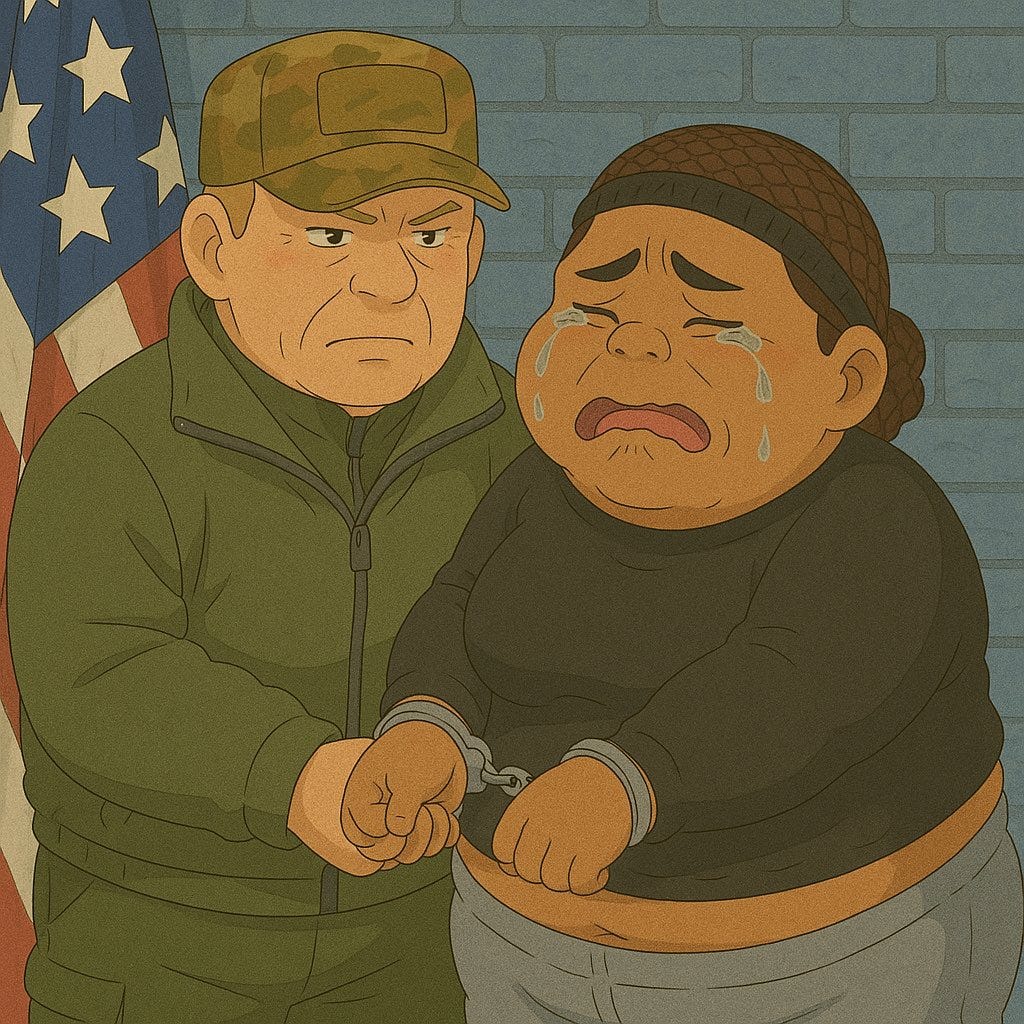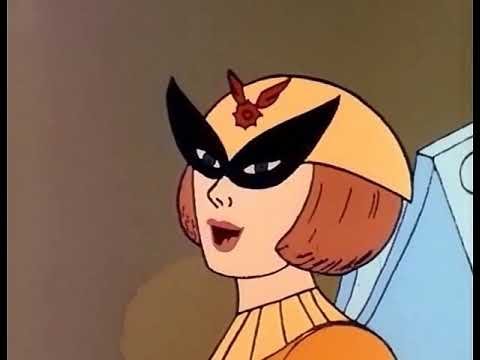A man—in this case, me—walks into a bar and asks for a Coke. The barman responds with, “Pepsi ok?” Barely pausing to consider the existential implications, I blurt out, “Yes.” And there it is: a pathetic scene of human surrender. All those millions squandered on advertising Coca-Cola as “the Real Thing” were defeated by one question.
Why did I request a Coke in the first place? With impatient queues forming behind me, I blurt out “Coke”—it’s one syllable and the first soft drink that comes to mind. Do Coke and Pepsi even taste that different? It’s the sort of admission that sends soft drink aficionados scrambling for taste-test videos on YouTube.
Anyway, I settled at our table in Wetherspoons when I heard “Ghibli-fy,” a word unknown to me a mere week before. This felt inevitable, thanks to Bushell’s Law, which states that, given enough time, all discussions will drift toward the topic of AI. With this had the added pull of an animation theme.
For those who missed the internet craze—lucky you! Social Media’s been flooded with photos turned into Studio Ghibli-style art. Why Ghibli? Hayao Miyazaki, its founder, called AI art “an insult to life itself.1” Enter Sam Altman of OpenAI, playground bully taunting, “I’ve got your lunch—fight me!” .Everything then gets Ghibli-fied.

His site claims it “boosts creativity,” as if photocopying the Mona Lisa makes you da Vinci. Button-clicking a trend isn’t creative—it’s forgery without the inconvenience of mastering the actual skill of forging.
I couldn’t put it better than this clip:
To tech bros like Altman, Miyazaki is a naive, dusty old fool. Spending over a year on one shot is something a spreadsheet head can’t fathom.
Altman’s questionable moral philosophy seems bent on dehumanizing us, turning us into the “Alt-men” of his cult2. He acts like Dr. Popp, sipping his own Kool-Aid.
What Altman can’t get is that AI won’t replicate true magic. As I write this, sitting on the Tube and seeing people—the trembling fingers of an old lady reading the Metro, a hunched man’s peculiar movements, a girl nervously tapping her ice skates—I see how great artists like Miyazaki distil life’s details. AI can’t make your soul do that little jig of recognition—the one where something deep inside you nods and says, “Ah, yes, this is real.”
It’s humanity versus machine—Jazz Cow versus Dr. Popp. Jazz Cow may take it to extremes and shun all tech, but Miyazaki uses computers when it’s appropriate. Modern Tools helped many people create beautiful films with no hint of Altman’s soulless automation!
When animation first hit TV, budgets forced shortcuts. Looney Tunes’ high-quality chaos became too pricey, so studios adapted—quality dipped, but the joy and laughter endured.
AI seems like the next cost-saving step. Can it assist without stealing our soul? AI animation tools remain unpredictable—more like a drunk intern than a reliable assistant.
As OpenAI churned out static images, the animation actually came from other AI tools—still too unpredictable for real storytelling. But that may change. I recently worked with an AI company that’s making tools much more controllable and that feels more like a traditional animation tool. I'm loyal to my talented team—code can't replicate them. Any AI I use will be about working smarter, not ditching creativity.3
For years, we’ve heard about fake news, mostly linked to politicians. But here’s a cheery thought: Who ruled Florence in the 15th century? no clue. Yet we know Da Vinci’s masterpieces. If you zoom out far enough, Politicians fade into oblivion, yet art wins.
If we trade genuine creativity for automated knockoffs, we lose something vital that can’t be quantified on a spreadsheet. Watch Spirited Away and experience wonder in ways an endless scroll of fake memes can’t.
Miyazaki fears AI signals “the end times,” a loss of faith in ourselves.
Can we reclaim wisdom before it’s too late? If we do, maybe tech bros and traditional artists will find common ground—like Tom and Jerry setting aside their endless chase for a well-earned afternoon nap. Or perhaps we take the hard line, rallying behind our sax-wielding philosopher cow as he sounds the alarm: “The machines are coming!” The question is, are they marching to war or just popping into Wetherspoons for a pint and a chat? It is in our hands.
Speaking of pubs…
As a kid, I once made a fake ID for a friend so he could buy a drink. His grand plan fell apart instantly when he confidently asked for “a pint of the usual,” blissfully unaware that “The Usual” wasn’t a brand name. That’s worse than ordering a Coke and getting a Pepsi. The entire pub howled with laughter.
Now, if you fancy a fake Coke, go ahead—the bubbles will still tickle your nose. But when it comes to art, we should be more careful. A dodgy ID only cost my friend his dignity for an evening, but fake creativity could poison culture for generations. So, let’s take risks. Let’s back the real thing. Let’s champion art in all its forms. Even comedies about cows. Especially comedies about cows.
Just to keep you in the loop, I’m still at it, meeting people and making moves to bring this show to life! If you want to chat about that just drop me a message.
Keep it real
https://www.thestatesman.com/entertainment/hayao-miyazaki-reacts-to-ai-generated-ghibli-art-an-insult-to-life-itself-1503413980.html
https://athenil.com/openai-scientist-ilya-sutskever-cult-spiritual-chatgpt/ He has really gone of the deep end here!
For a more in-depth discussion of AI in filmmaking by
, it's fairly old in AI terms but remains the best I’ve seen.



